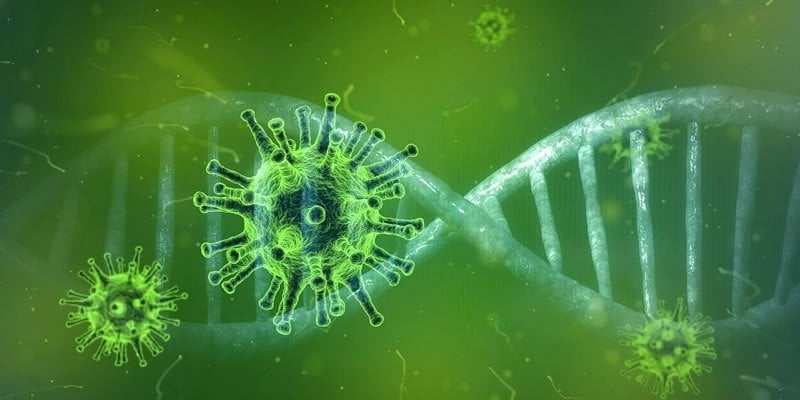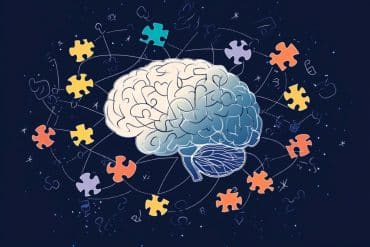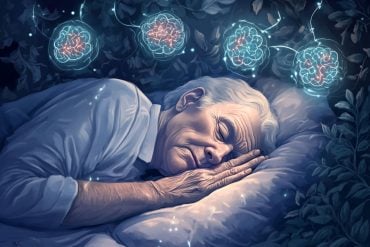Summary: Transplanting ACE2-mesenchymal stem cells shows promise for the treatment of COVID-19. A small study reveals seven severely ill patients who received the stem cell transplant recovered and were discharged from hospital within 14 days.
Source: University of North Texas Health Science Center
When news of the coronavirus emerged from Wuhan, China, Kunlin Jin, PhD, and a team of international researchers quickly joined forces to fight the mysterious disease.
Dr. Jin relied on his more than 20 years of knowledge about stem cells to work with an international team driven to save lives. He used the messaging app WeChat to bridge the distance between his laboratory at The University of North Texas Health Science Center at Fort Worth, and experts in China.
“A lot of people are trying find the answers,” said Dr. Jin, who spends most of his time working alongside graduate students on stem cell therapies to fight strokes at the HSC Institute for Healthy Aging.
Dr. Jin and his colleagues used a 21st century solution to address an unfolding pandemic. Instead of finding the next Tamiflu, they started testing whether stem cells can be used to boost a person’s immune system to ward off COVID-19 pneumonia.
Dr. Jin said early findings are promising, and their international effort to test this treatment continues as a long-term study with more patients in China.
“I am proud to be part of the team I work with to fight COVID-19,” Dr. Jin said. “Our study showed that intravenous infusion of clinical-grade human mesenchymal stem cells is a safe and efficient approach for treating patients with COVID-19 pneumonia, including in elderly patients displaying severe pneumonia.”
Dr. Jin and his colleagues worked in real time. He said they had a sense of urgency because the outbreak “posed great threats to global public health.”
As part of the experimental treatment, stem cells were injected intravenously into the bloodstream of seven patients in Beijing who were severely sick. Three patients were injected with a placebo, the study states.
The people tested were patients at YouAn Hospital in Beijing, Dr. Jin said. Testing began on Jan. 30, according to the study.
The seven patients who received stem cells were successfully treated and were discharged from the hospital within 14 days, Dr. Jin said. Of the patients who received the placebo, one died, one became severe and the third had Acute Respiratory Distress Syndrome (ARDS).
Before stem cells can be used in the United States to fight the virus, there would have to be clinical trials in this country and approval from the U.S. Food and Drug Administration.
The team’s findings will be included in the upcoming April 2020 issue of Aging and Disease.” The article is titled: “Transplantation of ACE2-Mesenchymal Stem Cells Improves the Outcome of Patients with COVID-19 Pneumonia.”
As international headlines about the virus evolved, research and clinical colleagues from several countries, including the United States, United Kingdom, South Korea, China and Russia pooled their expertise.

The team is made up of medical researchers who meet at conferences and often discuss science, aging and health-related issues. They work together as part of the International Society on Aging and Disease, which was founded by Dr. Jin.
When coronavirus strikes, it can result in a virus-induced cytokine storm – the term used when the immune system is so triggered that fluids fill the lungs and tissues are damaged.
“This is thought to be one of the main reasons why the COVID-19 pneumonia actually kills an individual – this storm of activity trying to fight the virus,” said David P. Siderovski, PhD, Professor and Chair Pharmacology & Neuroscience in HSC’s Graduate School of Biomedical Sciences.
“No specific drugs or vaccines are available to cure the patients with COVID-19 infection,” according to the journal article. “Hence, there is a large unmet need for a safe and effective treatment for COVID-19 infected patients, especially the severe cases.”
“Additionally, finding antivirals for patients with COVID-19 is a difficult task,” Dr. Siderovski said.
“When HIV broke in the 1980s, we scrambled to make AZT (azidothymidine),” he said, adding that researchers are trying different ideas to combat the virus. “There is a desperate need for anything – anything experimental, anything that could be tried off the shelf to address COVID-19 pneumonia.”
Source:
University of North Texas Health Science Center
Media Contacts:
Alex Branch – University of North Texas Health Science Center
Image Source:
The image is credited to University of North Texas Health Science Center.
Original Research: Closed access
“Transplantation of ACE2- Mesenchymal Stem Cells Improves the Outcome of Patients with COVID-19 Pneumonia”. Kunlin Jin et al.
Aging and Disease doi:10.14336/AD.2020.0228.
Abstract
Transplantation of ACE2- Mesenchymal Stem Cells Improves the Outcome of Patients with COVID-19 Pneumonia
A coronavirus (HCoV-19) has caused the novel coronavirus disease (COVID-19) outbreak in Wuhan, China. Preventing and reversing the cytokine storm may be the key to save the patients with severe COVID-19 pneumonia. Mesenchymal stem cells (MSCs) have been shown to possess a comprehensive powerful immunomodulatory function. This study aims to investigate whether MSC transplantation improves the outcome of 7 enrolled patients with COVID-19 pneumonia in Beijing YouAn Hospital, China, from Jan 23, 2020 to Feb 16, 2020. The clinical outcomes, as well as changes of inflammatory and immune function levels and adverse effects of 7 enrolled patients were assessed for 14 days after MSC injection. MSCs could cure or significantly improve the functional outcomes of seven patients without observed adverse effects. The pulmonary function and symptoms of these seven patients were significantly improved in 2 days after MSC transplantation. Among them, two common and one severe patient were recovered and discharged in 10 days after treatment. After treatment, the peripheral lymphocytes were increased, the C-reactive protein decreased, and the overactivated cytokine-secreting immune cells CXCR3+CD4+ T cells, CXCR3+CD8+ T cells, and CXCR3+ NK cells disappeared in 3-6 days. In addition, a group of CD14+CD11c+CD11bmid regulatory DC cell population dramatically increased. Meanwhile, the level of TNF-α was significantly decreased, while IL-10 increased in MSC treatment group compared to the placebo control group. Furthermore, the gene expression profile showed MSCs were ACE2- and TMPRSS2- which indicated MSCs are free from COVID-19 infection. Thus, the intravenous transplantation of MSCs was safe and effective for treatment in patients with COVID-19 pneumonia, especially for the patients in critically severe condition.






